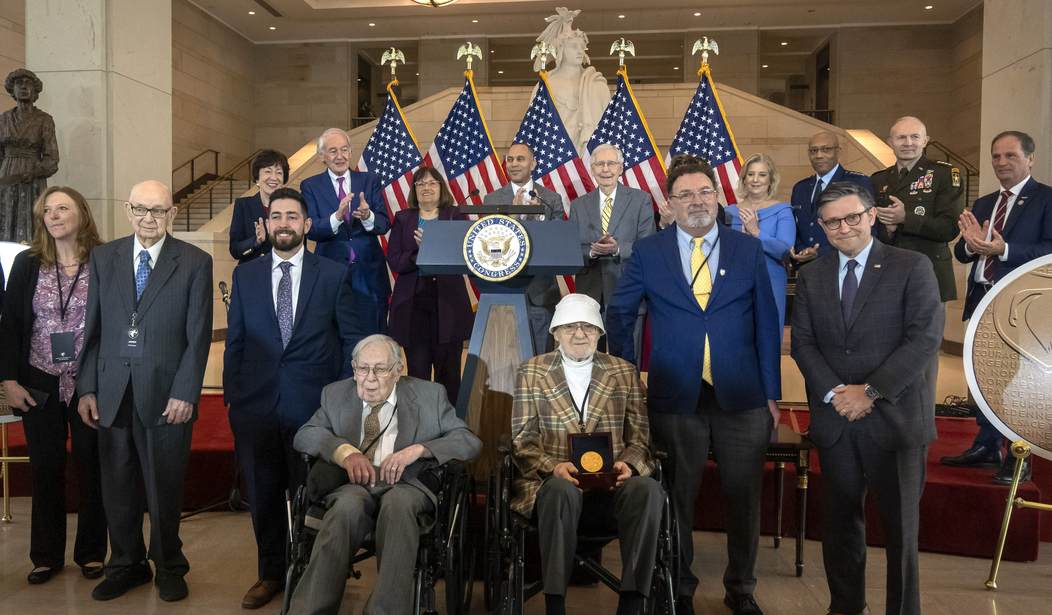Congress awarded a long-overdue Congressional Gold Medal in 2022 to the "Ghost Army" of World War II, who carried out multiple battlefield deceptions that, in many cases, completely flummoxed the Nazis.
The group of seven surviving members received their Gold Medals in a ceremony at the U.S. Capitol on Thursday.
The Ghost Army's mission was only declassified in 1996. Their operations saved between 15,000 and 30,000 lives according to Speaker Mike Johnson (R-La.), who presided over the ceremony.
“The actions of the Ghost Army helped change the course of the war for thousands of American and Allied troops and contributed to the liberation of a continent from a terrible evil,” Secretary of the Army Christine Wormuth said during the ceremony.
Seymour Nussenbaum, 100, of Monroe Township, N.J., was one of three surviving members to attend the ceremony.
“We have had in some cases people impersonating generals, putting on a general’s uniform and walking around the streets,” he said. The units also had "inflatables" like tanks and jeeps that, from the air or a distance, looked realistic.
Rick Beyer is a filmmaker, and author who helped bring the Ghost Army story to light in a 2013 documentary “The Ghost Army.”
“They put themselves in harm’s way wielding imagination, bravado, and creativity in order that other soldiers might be able to fight and live,” Beyer told those gathered Thursday.
“This is a day that has been a long time coming, but it has been well worth the wait,” Beyer said.
The Ghost Army included about 1,100 soldiers in the 23rd Headquarters Special Troops, which carried out about 20 battlefield deceptions in France, Luxembourg, Belgium and Germany, and around 200 soldiers in the 3133rd Signal Company Special, which carried out two deceptions in Italy.
One of the biggest missions, called Operation Viersen, came in March 1945 when the 23rd Headquarters Special Troops’ deception drew German units away from the point on the Rhine River where the 9th Army was actually crossing.
Operation Viersen was enormously complex with many moving parts that went off almost without a hitch.
“They had hundreds of inflatables set up,” Beyer said in an interview before the ceremony. “They had their sound trucks operating for multiple nights. They had other units attached to them. They had set up multiple phony headquarters and staffed them with officers who were pretending to be colonels.”
“This was an all-hands-on-deck affair and it was completely successful,” Beyer said. “It fooled the Germans. They moved their troops to the river opposite where the deception was.”
In many of these operations, the Ghost Army had literally no support. In September 1944, they filed into a gap in Patton's army near the French city of Metz. They carried out a classic deception, making the Germans think the gap had been filled by combat troops.
“They end up holding this part of the line for eight days, which is really long in terms of doing a deception, trying to keep up appearances,” Beyer said.
Surviving by their brains and wits, the Ghost Army deserves every accolade they get. This one was long overdue.










Join the conversation as a VIP Member